University of Kent
Type of resources
Topics
Keywords
Contact for the resource
Provided by
Years
Formats
Representation types
Update frequencies
Resolution
-
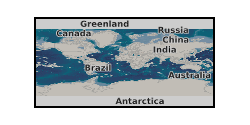
This poster on the UKCCSRC Call 2 project CO2 Flow Metering through Multi-Modal Sensing and Statistical Data Fusion was presented at the UKCCSRC Manchester Biannual Meeting, 13.04.2016. Grant number: UKCCSRC-C2-218.
-
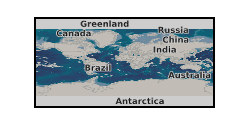
The data is collected in North China Electric Power University (NCEPU) on a 1-inch bore, gas-liquid two-phase, high pressure (up to 72bar), ambient temperature CO2 flow test rig from 19th May to 3rd June 2016. Single phase gas and liquid information are provided by Coriolis meter and mixed together. Then a vertical Coriolis meter is used to measure the two-phase mixture together with a DP transmitter measuring differential pressure across the vertical Coriolis meter under test. UKCCSRC Call 2 project: CO2 Flow Metering through Multi-Modal Sensing and Statistical Data Fusion. Grant number: UKCCSRC-C2-218. Published papers: 1) Mass flow measurement of two-phase carbon dioxide using Coriolis flowmeters (https://doi.org/10.1109/I2MTC.2017.7969891). 2) Mass flow measurement of gas-liquid two-phase CO2 in CCS transportation pipelines using Coriolis flowmeters (https://doi.org/10.1016/j.ijggc.2017.11.021).
-
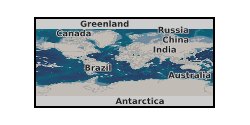
This presentation on the UKCCSRC Call 2 project CO2 Flow Metering through Multi-Modal Sensing and Statistical Data Fusion, was presented at the UKCCSRC Edinburgh Biannual Meeting, 15.09.2016. Grant number: UKCCSRC-C2-218.
-
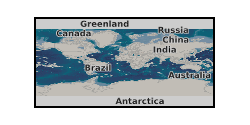
This poster on the UKCCSRC Call 2 project, CO2 Flow Metering through Multi-Modal Sensing and Statistical Data Fusion, was presented at the Cardiff Biannual, 10.09.14. Grant number: UKCCSRC-C2-218.
-
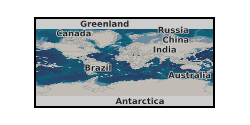
Measurement and monitoring of CO2 flows across the entire CCS chain are essential to ensure accurate accounting of captured CO2 and help prevent leaking during transportation to and from storage sites. This particular R&D need has been identified as one of the highest priority areas in the latest APGTF Strategy Report and in the UKCCSRC RAPID Handbook as well as in a recent study by NEL. The need for addressing measurement uncertainty and its importance for CO2 flows is a key factor in the CCS chain. The accurate measurement of CO2 is also vital to lift the strict regulations from legislative bodies off the full deployment of CCS and create a more positive public perception towards CCS. In addition, it is imperative to investigate the flow metering aspects of CO2 to inform the legislators and regulators and to have this underpinning knowledge available to the providers of the design, build and operation of CCS plants. In this project a cutting-edge technology for the measurement of CO2 flows in CCS pipelines will be developed. The technology will incorporate multi-modal sensing and statistical data fusion techniques. General-purpose flow sensors, including Averaging Differential Pressure, ultrasonic and Coriolis together with temperature, pressure and electrical impedance transducers, will be utilised to create a prototype multi-modal sensing system. A statistical data fusion method based on Bayes' rule for combining prior and observation information will be developed to integrate the outputs of the sensors and transducers. Various statistical data fusion models will be developed off-line and optimal data fusion models will be selected for on-line implementation. Meanwhile, a dedicated CO2 mass flow reference platform will be built using precision weighing techniques and its uncertainty will be established. Extensive experimental work will be conducted on the CO2 mass reference platform after implementing the on-line statistical data fusion models. The multi-modal sensing system will then be extensively tested under controlled flow conditions which resemble practical CCS conditions. The measurement uncertainty for each selected data fusion model will be reported together with the implication of costs, which will be a very informative source for users, manufacturers and researchers. Finally, the multimodal sensing system will be scaled up with the support of the industrial partner and evaluated on their large line (>DN250) flow test facility under simulated flow conditions. Effects of impurities in the CO2 flow on the performance of the flow measurement system will also be studied. Findings from the project will be disseminated to the UKCCSRC and a wider community. Grant number: UKCCSRC-C2-218.
-
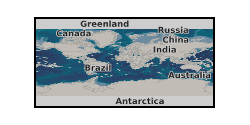
This poster on the UKCCSRC Call 2 project CO2 Flow Metering through Multi-Modal Sensing and Statistical Data Fusion was presented at the CSLF Call project poster reception, London, 27.06.16. Grant number: UKCCSRC-C2-218. Measurement and monitoring of CO2 flows across the Carbon Capture and Storage (CCS) chain are essential to ensure accurate accounting of captured CO2 and help prevent leaking during transportation to storage sites. The significant changes in physical properties of CO2 depending on its state (gas, liquid, two-phase or supercritical) mean that CO2 flows in CCS pipelines are complex by their nature. Meanwhile, impurities in a CO2 pipeline also make the flow more likely in the form of two-phase mixture. Despite difficulties due to the changes in CO2 properties, there has been very little research into metering issues of CO2 flows. The aim of this project is to develop a cutting-edge technology for CO2 flows metering in CCS pipelines. The objectives are as follows: • To establish a mass reference platform for CO2 flowmeter calibration; • To develop a prototype multi-modal sensing system and data fusion algorithms for mass flow metering of CO2; • To evaluate the performance of the multi-modal sensing system under single-phase and two-phase CO2 flow conditions.
-
This data set provides a spatial stratification of forest cover into discrete vegetation classes according to the High Carbon Stock (HCS) Approach. The data set covers the Stability of Altered Forest Ecosystems (SAFE) project site located in Sabah, Malaysian Borneo. Data were collected in 2015 during a project which was included in the NERC Human-modified tropical forest (HMTF) programme. Full details about this dataset can be found at https://doi.org/10.5285/81cad1ef-b5cc-4592-a71f-204a5d04b700
-
This data set contains stacked detection matrices for 28 recorded mammal species across 115 sampling locations at the Stability of Altered Forest Ecosystems (SAFE) project site located in Sabah, Malaysian Borneo. Information for each camera trap sampling location, including spatial information and sampling effort is included. Data were collected in order to determine the contribution of carbon-based policies to biodiversity conservation in agricultural land-use mosaics. These data are essential to the development of the occupancy detection matrix. Data were collected in 2015 during a project which was included in the NERC Human-modified tropical forest (HMTF) Programme. Full details about this dataset can be found at https://doi.org/10.5285/62774180-ae72-4873-9482-e8be3935f533
-
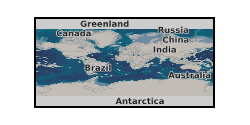
UKCCSRC Flexible Funding 2020. The experimental data was collected on a 1-inch bore gas-liquid two-phase CO2 flow rig in real time. The first column of the table is the time stamp. The second to 19th columns are the mass flowrates, temperatures, densities and tube frequencies from Coriolis flowmeters installed on the gas phase section, liquid phase section, horizontal test section and vertical test section, respectively. The last column of the datafile is the reading from the differential pressure (DP) transducer installed across the Coriolis flowmeter on the horizontal test section. UKCCSRC Flexible Funding 2020: Monitoring of CO2 flow under CCS conditions through multi-modal sensing and machine learning.
-
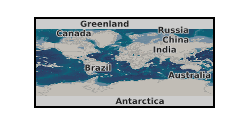
UKCCSRC Flexible Funding 2020. Experimental data are the acoustic emission (AE) signals collected with three AE sensors when CO2 leak from a CO2 storage cylinder under different pressures. '5MPa_20kgh-1' means the data was collected when the pressure was 5MPa and the leakage rate was 20 kg/h. The sampling frequency of AE signals is 3MHz. UKCCSRC Flexible Funding 2020: Monitoring of CO2 flow under CCS conditions through multi-modal sensing and machine learning.
 NERC Data Catalogue Service
NERC Data Catalogue Service